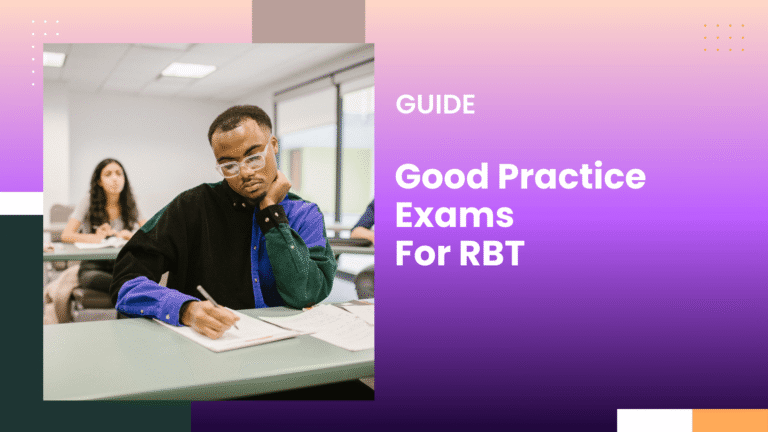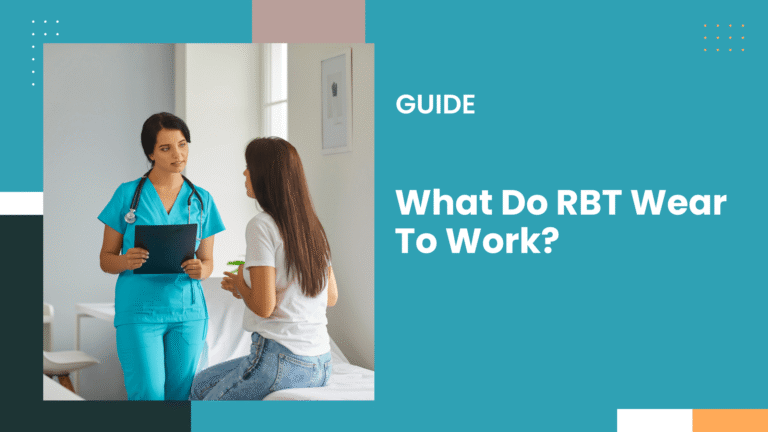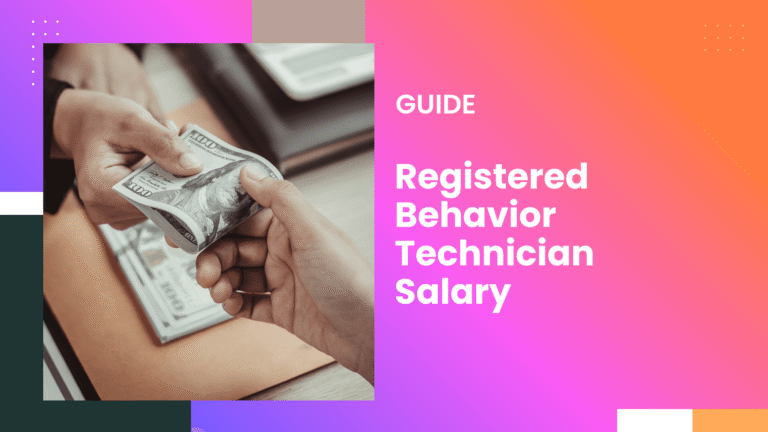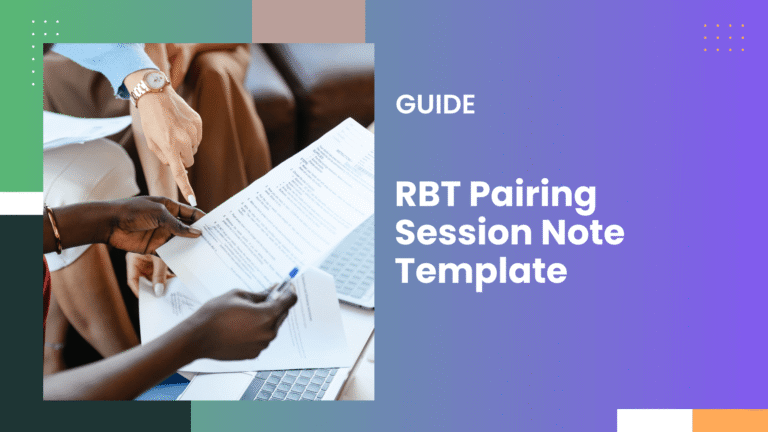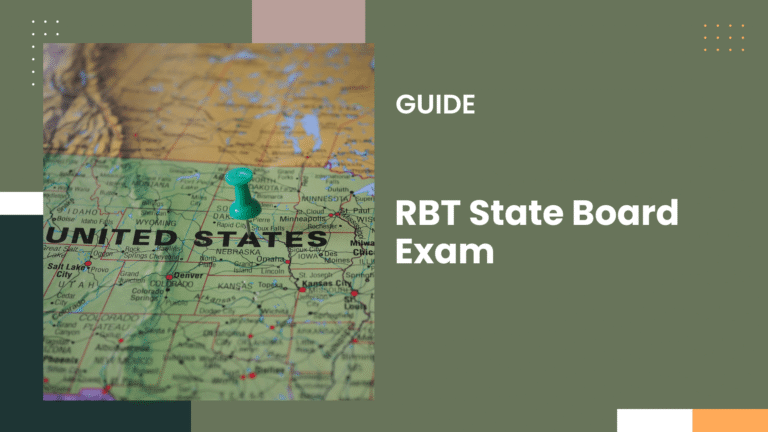RBT Exam Preparation Guide: How to Prepare & Pass 2025
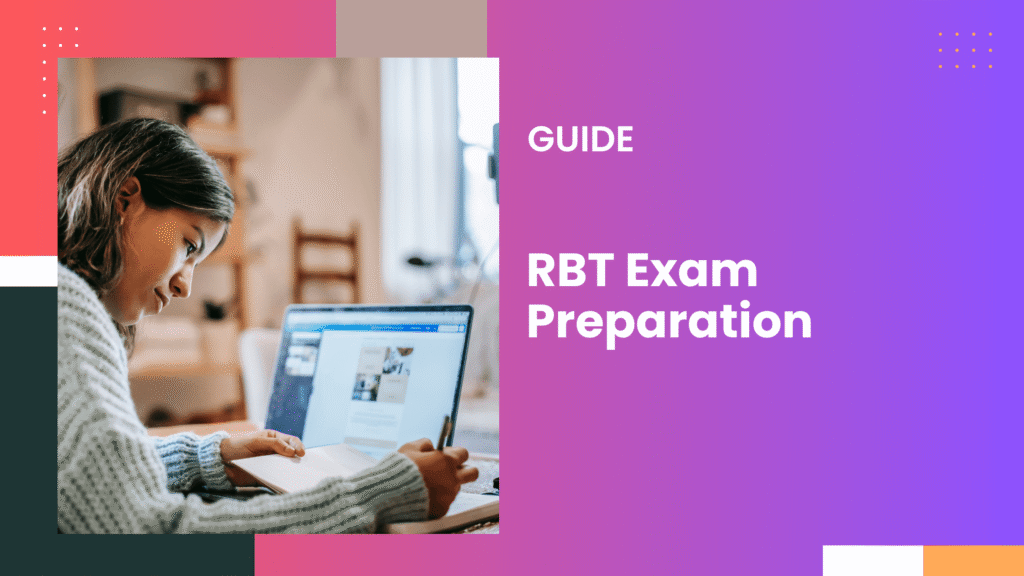
RBT Exam Preparation with detailed study guides and multiple test series across 6 key sections. Boost your confidence and start your journey to success today.
Speaking from personal experience, to pass this RBT exam, the real secret isn’t just studying hard, it’s studying smart.
Especially when it comes to measurement and data collection—don’t wing it.
What’s on the RBT Exam?
Well, this exam has 75 scored multiple-choice questions and 10 unscored pilot questions.
You’ll have 90 minutes to finish.
All questions come from the RBT Task List (3rd Edition), which covers these 6 domains:
- Unit A: Measurement
- Unit B: Assessment
- Unit C: Skill Acquisition
- Unit D: Behavior Reduction
- Unit E: Documentation
- Unit F: Professional Conduct
You can click on each of these individual pages for a detailed study guide that I have compiled for you.
How to Prepare for the RBT Exam?
1. Download the Task List (3rd Edition)
You can’t pass if you don’t know what they’ll test you on.
Well, isn’t that common sense?
So, get the official task list from the BACB. Every single question on the exam comes from it. Break your studying into domains.
If you haven’t already downloaded or viewed the RBT Task List, Click here to get the latest TCO.
That list is your foundation.
Every skill, definition, and ethical rule you need to know is right there. But just reading isn’t enough to pass and practice this carrer.
You need to study it piece by piece and apply it to real situations.
One mistake I see a lot of people make is jumping into random practice tests before they even understand what they’re being tested on.
Instead, i want you to break the task list into domains and spend time with each and Make sure you know what each task means, why it matters, and how you’d do it during a session, rather than googling RBT Practice test online first thing.
2. Build a Study Plan That Works
I did this in high school, but this won’t work for the RBT exam cause this exam isn’t just about knowledge but also practical ability.
They think they can cram a week before the test and be fine.
That’s rarely true.
Instead, I want you to give yourself 4 to 6 weeks. You’ll retain more, stress less, and actually understand what you’re doing.
Structure your study sessions into 60 to 90-minute chunks. Use the first half for review. S
pend the second half doing active work: quizzes, flashcards, or mock questions. You don’t have to study every day, but all those small consistencies will go a long way down the road.
Make each session count. So, if you’re tired, stop and don’t study distracted.
This exam isn’t about hours—it’s about focus.
- Start 4–6 weeks before the test
- Study in 1–2 hour blocks with short breaks
- Don’t try to learn everything in one week—space it out
- Rotate subjects (don’t study Measurement 5 days in a row)
3. Focus Hard on Data Collection
I’m not saying you should keep some section as less important, but the Measurement domain takes up a huge part of the exam.
You need to understand:
- Continuous measurement: frequency, duration, latency
- Discontinuous measurement: partial, whole, momentary
- Permanent product recording
- Graphing and interpreting trends
- Calculating rate, percentage, and IOA
Sounds simple? It’s not.
Especially when you’re faced with multiple answers that all sound kind of right and true on face value.
So, how do you differentiate it and know the right answer? Well, the only way to master this is through hands-on practice.
Take a stopwatch. Time how long it takes a friend to walk across the room.
Try graphing it.
Watch a video and tally every time someone says a specific word.
Basically, you can try to turn theory into muscle memory.
Expert Tip: Maybe try setting a timer and recording how long a behavior lasts. Next, you can graph the data. Repeat that every day with different behaviors (hand-raising, talking, etc.).
4. Use Active Study Tools
- Flashcards: Create your own or use our study guide and test series to help you out.
- Practice Tests: Use the BDS, RBT Exam Center app, or free mock exams online
- Videos: There are tons of YouTube tutorials online that can help you visualize concepts like prompt fading, reinforcement schedules, or ABC data
Don’t just read and try to practice how questions are worded.
5. Study Real-Life Scenarios
As I mentioned above, the exam doesn’t care if you memorize definitions and cram them.
It wants to know if you’d act ethically when a parent offers you a gift, or if you’d collect data correctly when a child runs off mid-session.
So, my advice is to test yourself by taking real situations (from your training, job, or Reddit) and applying the code.
However, that doesn’t mean you should not memorize definitions. Yes, Textbook definitions are helpful, but real-life examples stick better.
- Role-play with a partner (one person is the client, the other is the RBT)
- Ask your BCBA to quiz you based on actual clients (without breaking HIPAA)
- Review real data sheets and practice writing objective notes
6. Simulate the Test Environment
Here’s a truth you won’t hear enough: you need to practice under test conditions.
That means setting a timer for 90 minutes. No phones. No music. No breaks. (cause that’s how your real exam will be like)
Sit down and take a full-length mock test.
Then go back and review what you missed—and why you missed it.
Was it wording? Misreading a graph? Forgetting a definition?
By the way, there is no amount of mock test that will prepare you for the real exam, but do at least a minimum of 3 full-length practice tests with a timer just to get used to the scenario, which is sitting still, focusing under pressure, and pacing yourself.
7. Join a Study Group
This is an optional, but if you have the time or are interested, try studying with other RBTs or trainees—even if it’s once a week.
- Quiz each other
- Explain tricky concepts out loud
- Compare answers and spot gaps
Studying alone and self-studying is the best option if you have fully cleared the concepts and don’t like distractions like me, but RBT involves real-life scenarios and will help you even better with real interaction.
Even one session can clear up a lot of confusion.
8. Use Behavior Development Solutions (BDS)
Behavior Development Solutions (BDS) is popular for a reason, and do you wanna know the reason?
Cause It works.
Their platform breaks down content by domain, includes quizzes, gives you progress reports, and helps you spot what you’re missing.
But you don’t need BDS to pass. You can do the same thing yourself if you’re willing to put in the time.
Use Quizlet for flashcards. Take our free RBT mock tests.
Grab a whiteboard and draw out your own token economy.
Watch YouTube videos on prompt fading. Read Reddit threads and Quora answers where actual RBTs share their mistakes, and you can learn from them.
9. Get Ready for Test Day
This is again different for different individuals, but try to follow along with these
- Sleep early
- Eat something that won’t crash your energy
- Show up 30 minutes early with a valid photo ID
- Leave your phone in the car—no electronics allowed
What If You Don’t Pass?
This question is in everybody’s mind who will be giving the RBT exam, and that includes you.
Well, first of all, don’t panic. It’s not the end of the world and I will be there for you along the way to help figure out what went wrong and better yourself for your next try.
If you don’t pass, you’ll get a breakdown of how you did in each domain. That tells you where to focus.
You’ll need to wait 30 days before retaking it.
The BACB gives you three tries per year, so use them wisely. So, if you failed by a few points, don’t start over. Just sharpen your weak spots and go again.
You’ve got this.
- You can retake the exam after 30 days
- You get 3 tries within 1 year
- You’ll receive a breakdown by domain so you know where to focus
Just remember failure is part of life, don’t get discouraged, and try again with learning from your weakness.
What Real RBTs Say – Online Forums
I did a few subreddit scouring and here are a few stories that will encourage you along the preparation.
“I failed the first time because I skipped graphing. Second try—I practiced graphs and IOA every day. Passed with 88%.”
— RBT on Reddit
“I used BDS, Quizlet, and ABA Rocks. The biggest help was understanding how questions are written—not just the content.”
— Reddit user in r/ABA
My final words will be If you want to pass the RBT exam, you definitely can.
You don’t need to be perfect and know everything on day 1. But my advice would be that if you are serious about it, be just consistent. Study smart. Focus hard on measurement.
Know how to spot ethical mistakes in scenarios and practice under pressure.
I trust in you and I am sure you will pass with colorful marks and see the other side.
If you can’t this time, don’t get discouraged, as there is always another try. Hit me up in my contact us page and we can have a chat and see where we can improve along for the next try.
Good luck to you all!

